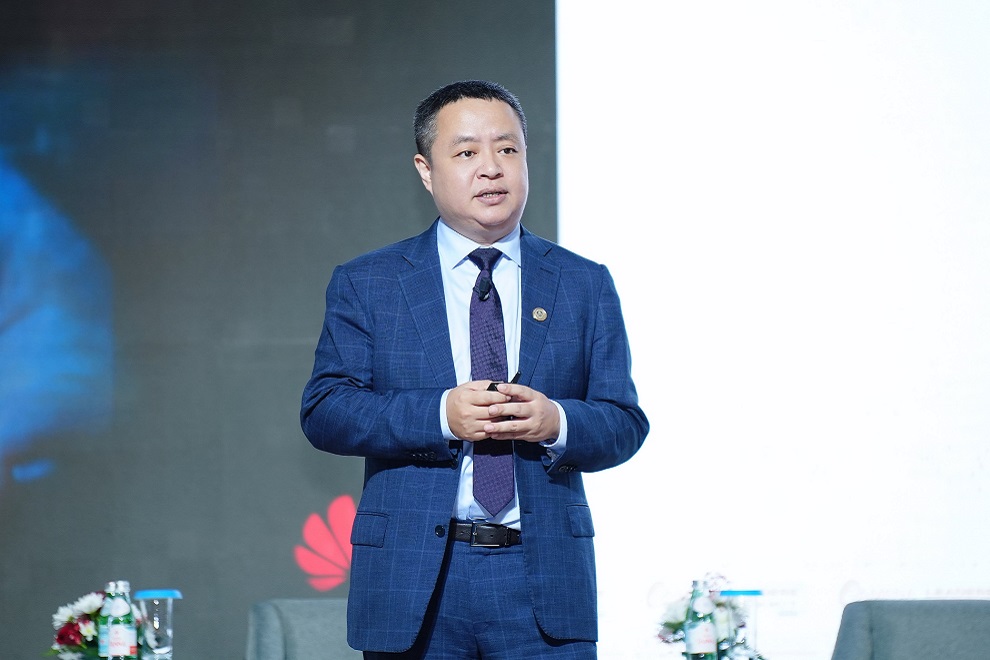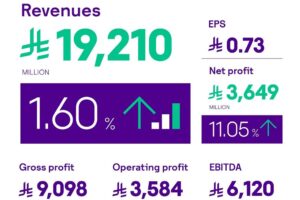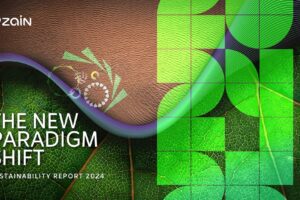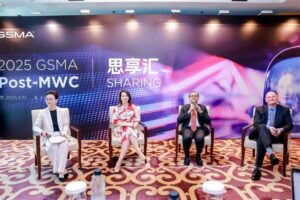Huawei Technologies, a global leader in information and communications technology (ICT) solutions, emphasized the crucial role of green ICT development in ensuring sustainable digital economic growth during a keynote delivered by Mr. Alex Wang, Senior Vice President of Huawei Carrier BG Marketing, at the SAMENA Leaders’ Summit.
In his address, Mr. Wang highlighted the evolution of intelligence and the need for co-development between ICT and energy technology. “Much like human evolution, our technology has evolved to become increasingly intelligent. Today, computing capability has grown by leaps and bounds and consequently, the corresponding energy consumption is also increasing. We firmly believe that green and low-carbon development, as well as digital and intelligent transformation are the two main forces driving the fourth industrial revolution forward.”
Green ICT deployment is considered a prerequisite for sustainable digital economic growth. Mr. Wang emphasized that digital technology advancements provide new opportunities to achieve sustainability while meeting user experience requirements. He identified the density of connections, computing power, and decarbonization intensity as the main dimensions for measuring the green digital economy.
According to estimations by ITU, the connectivity density will increase as global data traffic increases 14 times from 2020 to 2030. The computing power is also poised to grow more than 10 times during the same period. However, the massive data and computing power growth will naturally result in higher network energy consumption. This can pose a challenge, especially in light of the Paris Agreement that requires the ICT industry to reduce carbon emissions by 45% within this decade.
To face the challenge and reduce carbon emissions, Mr. Wang highlighted three critical aspects: energy efficiency, the utilization rate of renewable energy, and user experience.
First, Huawei has developed a three-layer green solution to enhance network energy efficiency and has introduced “Zero Bit, Zero Watt” to minimize energy consumption, particularly during idle network hours. In low traffic load scenarios, Huawei’s multi-dimensional shutdown technology achieves “deep dormant” for Active Antenna Units (AAUs), significantly reducing AAU power consumption from 300W to below 10W.
Second, Huawei’s approach to renewable energy focuses not only on the scale of deployment but also on the efficiency of deploying and utilizing green energy. The company has transitioned from network-level to site-level planning and deployment of green power, improving accuracy. Intelligent scheduling, operating at daily to minute levels, optimizes the efficiency of renewable energy generation, conversion, and utilization, resulting in enhanced economic and environmental benefits.
Last but not least, in terms of user experience, Huawei ensures network Key Performance Indicators (KPIs) for energy-saving while prioritizing user satisfaction. Optimal energy-saving strategies are implemented for different network scenarios, maximizing energy efficiency while guaranteeing basic network KPIs in low-traffic situations. For high-traffic scenarios such as Fixed Wireless Access (FWA) services and VIP users, Huawei focuses on providing an exceptional user experience.
In addition to technological advancements, Huawei actively collaborates with global operators and standard organizations to promote the standardization of green indicators. Mr. Wang urged operators in the Middle East, North Africa, and South Asia regions to join forces in promoting innovative regional green indicators. This includes the application of multi-dimensional energy efficiency indicators, the establishment of regional network energy efficiency benchmarks, and guidance for constructing networks that prioritize both user experience and energy efficiency.
By emphasizing the importance of green ICT and sustainable connectivity, Huawei Technologies aims to contribute to developing a digital economy that is environmentally friendly, efficient, and meets the evolving needs of users.












